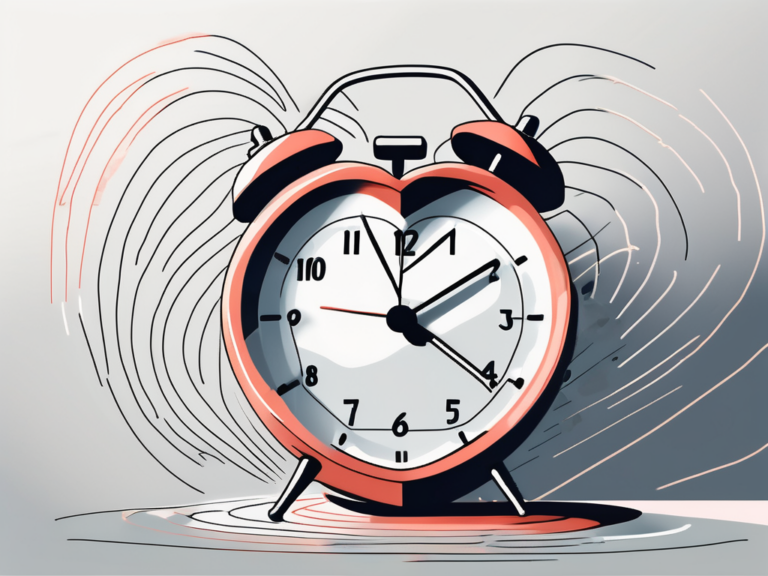Uncovering the Importance of Sympathetic Nerves: Why I Heart Them
As someone who has always been fascinated by the inner workings of the human body, I have developed a deep appreciation for the intricate systems that keep us alive and thriving. One such system that has captured my attention is the nervous system, which consists of a vast network of nerves responsible for transmitting signals throughout the body. In this article, I want to shed light on a specific group of nerves known as sympathetic nerves and highlight their crucial role in our overall well-being. So buckle up and get ready to dive into the world of sympathetic nerves!
Understanding the Nervous System
Before we delve into the importance of sympathetic nerves, let’s take a moment to understand the broader nervous system. Simply put, the nervous system is like the command center of our body, controlling everything from our heartbeat to our thoughts and actions. It is divided into two main parts: the central nervous system (CNS) and the peripheral nervous system (PNS).
The CNS consists of the brain and spinal cord, while the PNS comprises all the nerves that extend from the CNS to the rest of the body. These nerves can be further categorized into two branches: the somatic nervous system, which controls voluntary movements, and the autonomic nervous system (ANS), which regulates involuntary functions.
The Role of Sympathetic Nerves
Within the ANS, sympathetic nerves play a vital role in preparing our bodies for action in response to stressful situations. They are like our personal cheerleaders, providing the energy and support needed to tackle life’s challenges. When faced with a perceived threat, these nerves kickstart the famous “fight or flight” response – a mechanism that has allowed our ancestors to survive dangerous encounters throughout evolution.
But what exactly do sympathetic nerves do during the fight or flight response? Well, they work tirelessly to mobilize our bodies, increasing our heart rate, dilating our blood vessels to enhance blood flow, and directing more oxygenated blood to our muscles and brain. In other words, sympathetic nerves act as superheroes, priming us for action and ensuring we have the resources necessary to overcome obstacles.
How Sympathetic Nerves Interact with Other Systems
As with any superhero, sympathetic nerves don’t work alone – they have sidekicks that help them in their mission. One such ally is the endocrine system, which releases hormones like adrenaline and noradrenaline when sympathetic nerves are activated. These hormones provide an extra boost of energy, making us feel more alert and ready to tackle whatever comes our way.
Additionally, sympathetic nerves interact with other organs and systems to ensure our overall survival. For instance, they communicate with the adrenal glands, which release stress hormones, further amplifying the fight or flight response. Sympathetic nerves even have a say in our digestive system, turning down its activity during moments of stress to conserve energy for more critical functions.
But the influence of sympathetic nerves extends beyond the fight or flight response. They also play a crucial role in maintaining homeostasis, the body’s ability to maintain a stable internal environment. For example, sympathetic nerves regulate our body temperature, ensuring that we stay warm in cold weather and cool in hot weather.
Moreover, sympathetic nerves are involved in our body’s response to pain. When we experience an injury or discomfort, these nerves transmit signals to the brain, alerting us to the problem and triggering a response to alleviate the pain. This mechanism helps protect us from further harm and promotes healing.
The Heart-Sympathetic Nerves Connection
The connection between sympathetic nerves and our heart health is particularly fascinating. Our hearts beat tirelessly day and night, pumping blood to every cell in our bodies. But did you know that sympathetic nerves add an extra dimension to this rhythmic symphony?
Let’s delve deeper into the intricate relationship between sympathetic nerves and heart function. Sympathetic nerves have a profound influence on our heart, helping to regulate its rate and rhythm. When we encounter a stressful situation, sympathetic nerves spring into action, increasing our heart rate to ensure that blood and oxygen reach our vital organs faster. This temporary acceleration is a natural response and can be a lifesaver in emergencies.
However, while sympathetic nerves are essential for our survival, they can also have a darker side. Prolonged periods of stress can lead to overactivation of sympathetic nerves, which in turn can place excessive strain on our hearts. This heightened sympathetic activity has been linked to an increased risk of heart disease and other cardiovascular conditions.
Now, let’s explore the impact of stress on sympathetic nerves and heart health. Stress has become a ubiquitous part of our modern lives, and unfortunately, our sympathetic nerves bear the brunt of this fast-paced world. Excessive stress can cause sympathetic nerves to go into overdrive, constantly being on high alert. As a result, our bodies remain in a perpetually active state, which can lead to chronic health conditions down the line.
It’s important to recognize that while our sympathetic nerves are well-equipped to deal with short bursts of stress, they are not designed to withstand prolonged periods of heightened activation. That’s why finding healthy ways to manage stress, like practicing mindfulness or engaging in regular exercise, is crucial for maintaining the balance of our sympathetic nerves and overall heart health.
Furthermore, recent studies have shed light on the fascinating interplay between sympathetic nerves and the release of stress hormones. When we experience stress, our bodies release hormones like adrenaline and cortisol, which activate the sympathetic nervous system. These hormones not only increase heart rate and blood pressure but also redirect blood flow to the muscles, preparing us for a fight-or-flight response.
However, prolonged exposure to stress hormones can have detrimental effects on our cardiovascular system. Chronic elevation of stress hormones can lead to the constriction of blood vessels, increasing the workload on the heart and potentially contributing to the development of hypertension and other heart-related conditions.
So, while sympathetic nerves play a crucial role in our body’s response to stress, it’s essential to find ways to manage stress effectively to prevent long-term damage to our hearts. By adopting healthy coping mechanisms and making lifestyle changes, we can support the balance between sympathetic nerves and heart health, ensuring the smooth functioning of this intricate connection.
The Importance of Sympathetic Nerves in Daily Life
Beyond their role in the fight or flight response and heart health, sympathetic nerves have a far-reaching impact on our daily lives. From the moment we wake up to the time we go to bed, these nerves work tirelessly, ensuring our bodies function optimally.
Sympathetic nerves are part of the autonomic nervous system, which controls involuntary bodily functions like heart rate, digestion, and respiratory rate. These nerves are like the silent heroes of our body, constantly monitoring and adjusting to keep us in balance. For example, when we are faced with a stressful situation, sympathetic nerves kick into gear, increasing our heart rate and dilating our pupils to help us react quickly.
Sympathetic Nerves and the Fight or Flight Response
Remember that adrenaline rush you felt before giving a presentation or competing in a race? That was your sympathetic nerves preparing you for action. In these moments, sympathetic nerves heighten our senses, sharpening our focus and giving us the extra push we need to perform at our best.
The Role of Sympathetic Nerves in Emotional Responses
Sympathetic nerves also play a role in our emotional responses. They can trigger the release of emotions like excitement, fear, or even love. We’ve all experienced that rush of emotion when we see someone we care about – it’s all thanks to sympathetic nerves setting our hearts aflutter.
Moreover, sympathetic nerves are interconnected with our immune system, influencing how our body responds to threats. When we are under chronic stress, these nerves can impact our immune function, making us more susceptible to illnesses. It’s essential to find ways to manage stress and support our sympathetic nerves to maintain overall well-being.
Maintaining Healthy Sympathetic Nerves
Now that we understand just how vital sympathetic nerves are to our well-being, it’s important to explore ways to keep them in top shape. While some factors influencing sympathetic nerve health are beyond our control, there are certain lifestyle choices and medical interventions that can make a significant difference.
Lifestyle Choices and Sympathetic Nerve Health
Leading a healthy lifestyle goes hand in hand with maintaining optimal sympathetic nerve function. Regular exercise, a balanced diet, and adequate sleep are all vital components of a healthy routine that can support the well-being of our sympathetic nerves.
Exercise not only helps to keep our bodies fit and strong, but it also plays a crucial role in the health of our sympathetic nerves. Engaging in physical activities that get our heart rate up, such as jogging, swimming, or cycling, stimulates the sympathetic nervous system and promotes its overall efficiency. So, lace up those running shoes and get moving!
A balanced diet rich in nutrients is another essential aspect of maintaining healthy sympathetic nerves. Including foods that are high in antioxidants, such as berries, leafy greens, and nuts, can help protect the nerves from oxidative stress. Additionally, incorporating omega-3 fatty acids found in fatty fish, flaxseeds, and walnuts into our meals can provide the necessary building blocks for nerve cell repair and maintenance.
Lastly, let’s not forget about the importance of quality sleep. During sleep, our sympathetic nerves have a chance to rest and recharge, ensuring they can function optimally when we wake up. Creating a relaxing bedtime routine, avoiding caffeine and electronic devices before bed, and ensuring a comfortable sleep environment can all contribute to a restful night’s sleep and the well-being of our sympathetic nerves.
Medical Interventions for Sympathetic Nerve Disorders
If you’re experiencing issues with your sympathetic nerves, it’s crucial to seek medical advice from a qualified healthcare professional. While this article aims to shed light on sympathetic nerves, I must stress that I am not a doctor, and any medical concerns should be addressed by professionals trained in the field.
With that being said, there are medical interventions available for specific sympathetic nerve disorders. These interventions may range from medications that help regulate sympathetic nerve activity to more specialized procedures performed by highly trained medical experts.
For example, in cases of excessive sympathetic nerve activity, medications known as beta-blockers may be prescribed to help regulate the nerves’ response. These medications work by blocking the effects of adrenaline on the sympathetic nervous system, thus reducing symptoms such as increased heart rate and blood pressure.
In more severe cases, where other treatment options have been ineffective, specialized procedures such as sympathetic nerve blocks or surgical interventions may be considered. These procedures aim to interrupt or modify the transmission of signals along the sympathetic nerves, providing relief from symptoms and improving overall nerve function.
In conclusion, sympathetic nerves truly are unsung heroes that deserve our admiration. From their pivotal role in the fight or flight response to their influence on heart health and daily life, these nerves keep us going even when the going gets tough. So let’s take a moment to appreciate the intricate web of sympathetic nerves that make us who we are and remember to nourish them through a healthy lifestyle, proper stress management, and, when necessary, medical interventions. After all, it’s thanks to them that we are able to navigate life’s ups and downs with courage and resilience.






